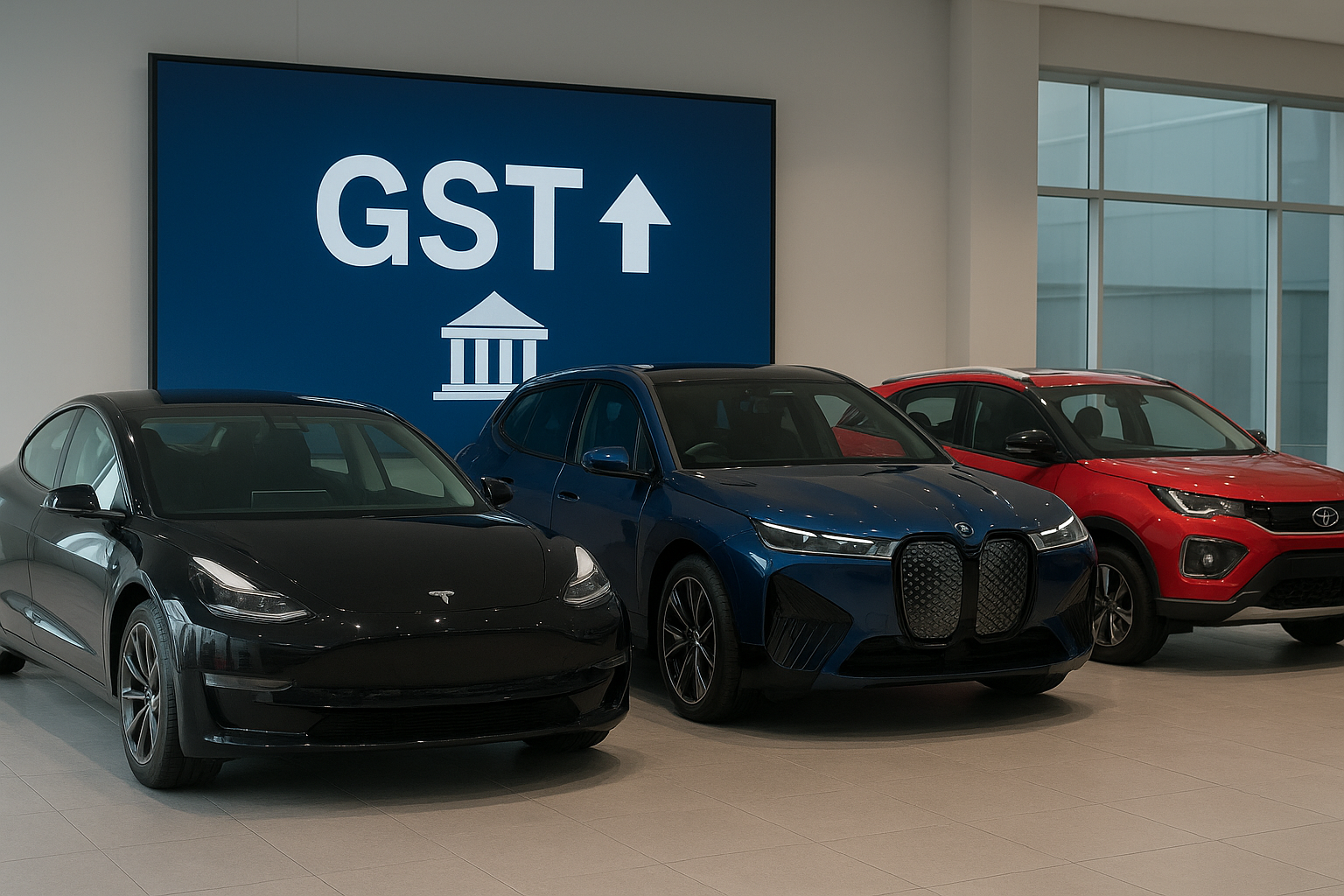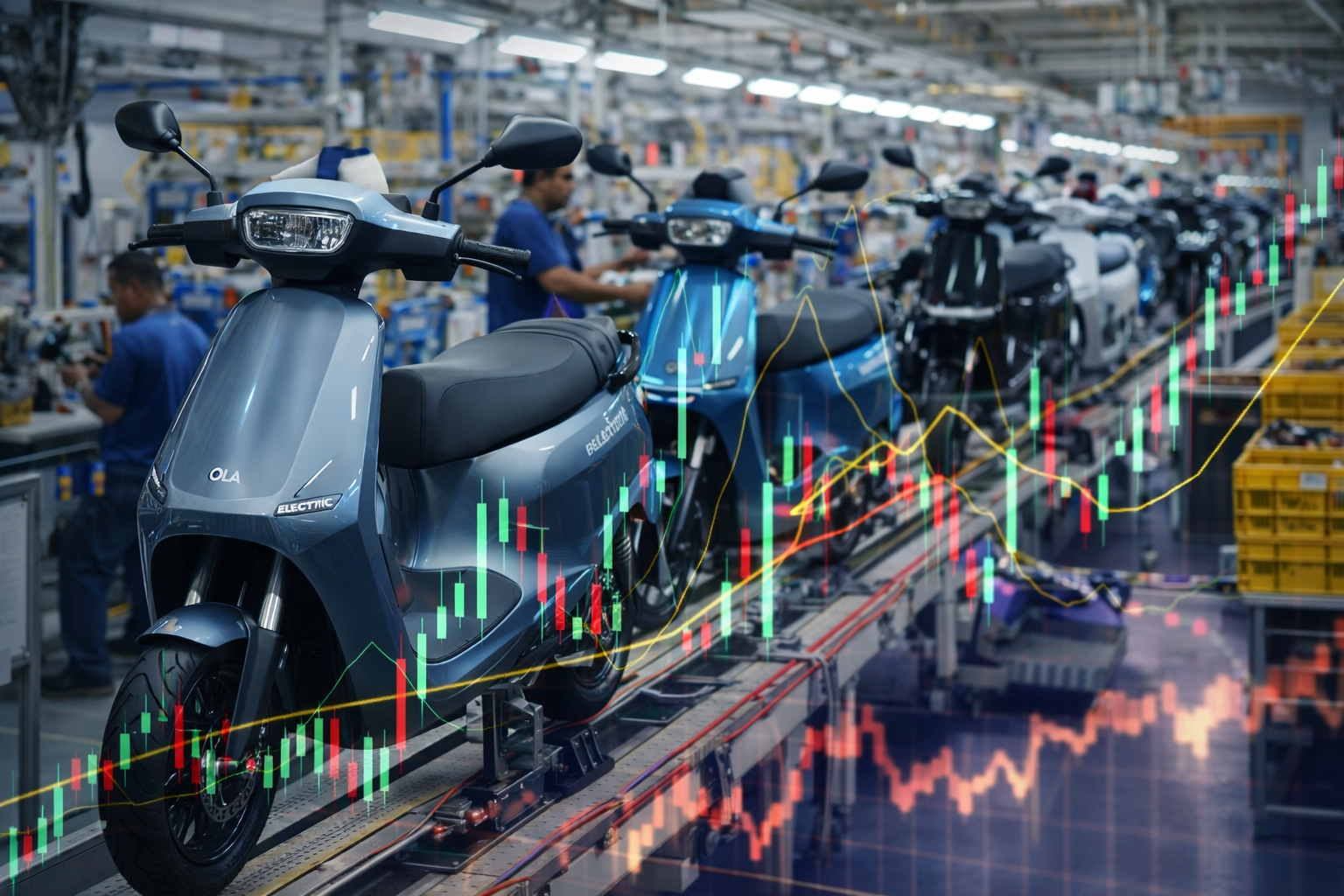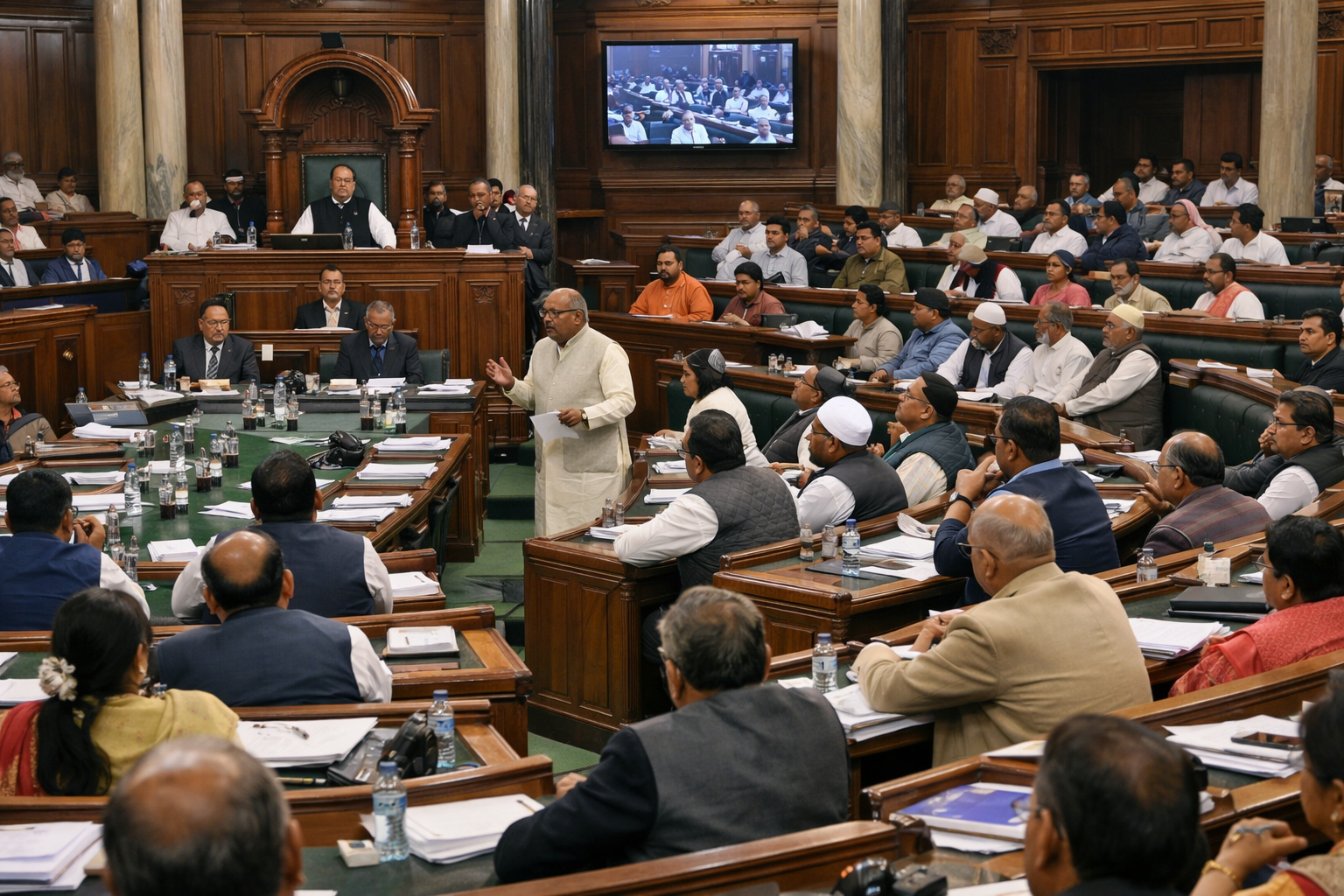India’s electric vehicle market, seen as a sunrise sector, could face turbulence after a panel of the GST Council recommended steep taxes on high-end electric cars. The move, if approved, could slow the momentum for premium EV makers such as Tesla, BMW, BYD, Mercedes-Benz and even homegrown Tata Motors, which has plans to expand in this category.
Why the panel wants higher levies
According to officials familiar with the discussions, the GST Council panel argued that luxury EVs should not enjoy the same tax benefits as affordable electric cars aimed at mass adoption. At present, most EVs attract just 5% GST, far lower than the 28% GST plus cess levied on petrol and diesel cars. The panel feels that keeping large, premium EVs in the same low-tax bracket creates an uneven playing field and drains government revenue.
What this means for automakers
If the recommendation goes through:
- Luxury EVs may move into the higher tax slab, possibly close to the 28% bracket.
- Affordable EVs—smaller models that cater to everyday buyers—could continue to enjoy the 5% GST.
- Premium global brands like Tesla and BMW, which are eyeing India as a growth market, may have to rethink pricing strategies.
- Domestic firms such as Tata Motors and Mahindra, which are preparing to bring higher-end EVs, could also face higher costs.
Industry voices show concern
While automakers have not officially reacted, industry experts caution that steep taxes may discourage global players from investing in India’s EV sector. “The government’s priority should be mass adoption and investment in EV infrastructure. If luxury EVs are over-taxed, companies may delay or scale down their plans,” said an auto sector consultant, requesting anonymity.
Impact on the EV ecosystem
India is already competing with Southeast Asian nations to attract EV manufacturing and battery investments. Higher taxes on premium models could send a mixed signal to investors. Analysts warn that the market could split—affordable EVs might continue to grow, but the premium category could stagnate, reducing consumer choice.
At the same time, policymakers believe the measure will protect revenue while ensuring that subsidies and tax incentives remain targeted at the middle class. “We want EV adoption, but not at the cost of subsidising luxury consumption,” a finance ministry official was quoted as saying.
What happens next
The proposal will be taken up in the next GST Council meeting, where state finance ministers and the Union finance ministry will debate the final decision. Automakers are expected to lobby for a middle ground—possibly a differentiated tax slab that does not completely wipe out the benefit but still sets luxury EVs apart from budget models.
For now, global giants such as Tesla, which has been negotiating entry into India with an eye on lower tariffs and a friendly tax regime, will be watching developments closely. The decision could shape whether India emerges as a major EV hub—or whether high-end buyers continue to import EVs at steep prices.
Closing note
The debate highlights India’s tricky balancing act: encouraging clean mobility while safeguarding tax revenues. The coming months will show whether policymakers can strike that balance without dimming the sparkle of the country’s EV dream.



